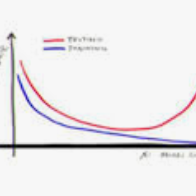This paper introduces a novel paradigm for the generalizable neural radiance field (NeRF). Previous generic NeRF methods combine multiview stereo techniques with image-based neural rendering for generalization, yielding impressive results, while suffering from three issues. First, occlusions often result in inconsistent feature matching. Then, they deliver distortions and artifacts in geometric discontinuities and locally sharp shapes due to their individual process of sampled points and rough feature aggregation. Third, their image-based representations experience severe degradations when source views are not near enough to the target view. To address challenges, we propose the first paradigm that constructs the generalizable neural field based on point-based rather than image-based rendering, which we call the Generalizable neural Point Field (GPF). Our approach explicitly models visibilities by geometric priors and augments them with neural features. We propose a novel nonuniform log sampling strategy to improve both rendering speed and reconstruction quality. Moreover, we present a learnable kernel spatially augmented with features for feature aggregations, mitigating distortions at places with drastically varying geometries. Besides, our representation can be easily manipulated. Experiments show that our model can deliver better geometries, view consistencies, and rendering quality than all counterparts and benchmarks on three datasets in both generalization and finetuning settings, preliminarily proving the potential of the new paradigm for generalizable NeRF.
翻译:暂无翻译


